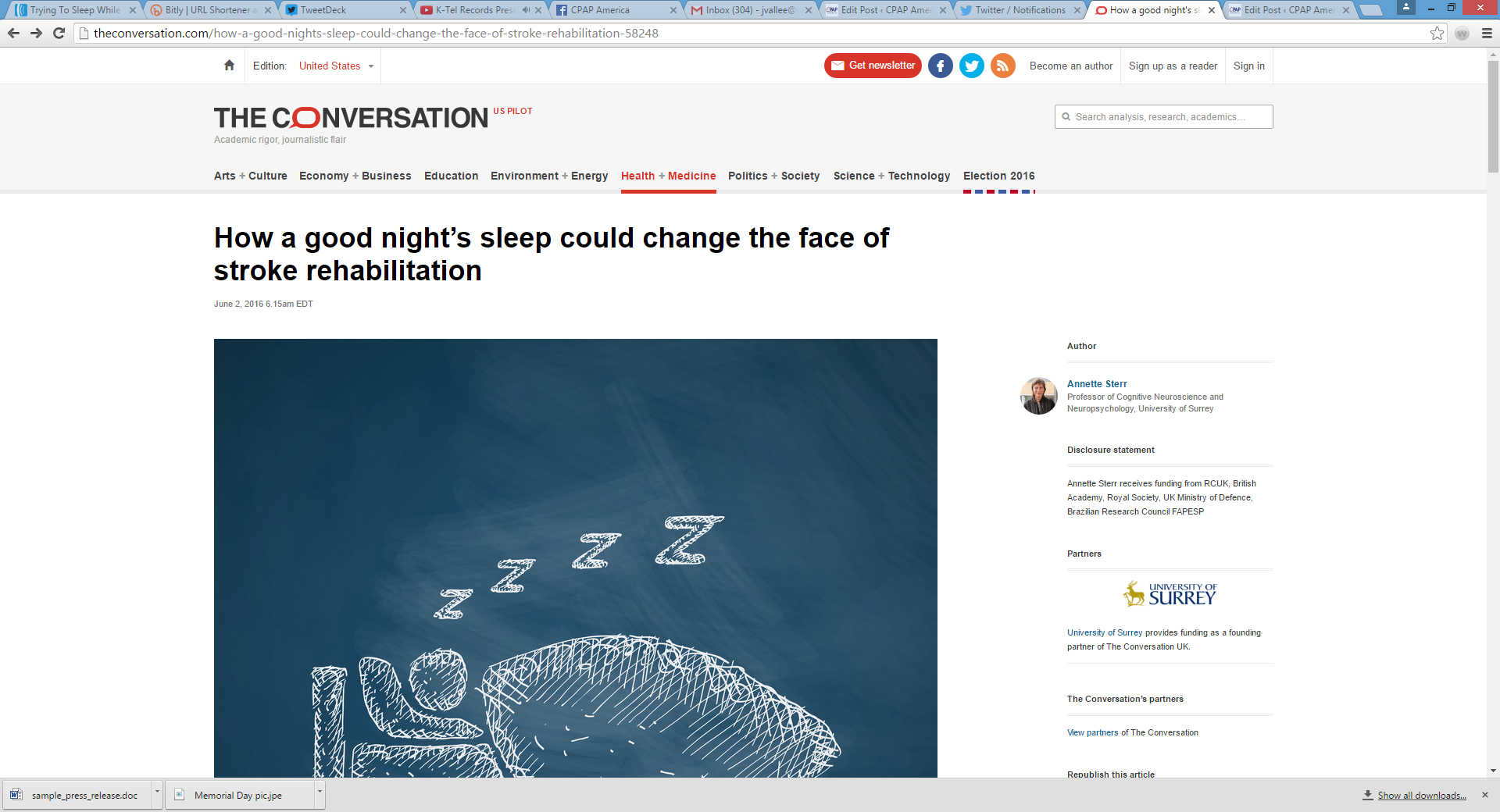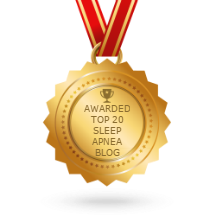
RESEARCH: Sleep Could Possibly Help In Stroke Recovery
Having a stroke can be a life-changing event and recovery can range widely. Some people regain most of the affected abilities early on while others improve very little within the first few months. One year on from a stroke 35% patients will remain permanently disabled and 10% will require care in a nursing home.
Millions of dollars are spent around the world every year on the rehabilitation and long-term care of stroke patients, and more effective stroke treatments are being investigated all the time. But beyond all the investment, research has shown that the simple art of sleep might help with the relearning of skills after brain damage.
And yet, in the stroke rehabilitation guidelines used by hospitals up and down the country, sleep is not mentioned. In neurorehabilitation – which is essentially rehabilitation of the brain – sleep is by and large ignored, even though we know that quality sleep can make a difference to patient recovery.
The science of sleep
Heavy snoring has long been identified as a big risk factor for stroke. So, given this connection between strokes and sleep, you would think we would know a lot about the sleep of people who have suffered a stroke – but actually we know relatively little.
We know that for “healthy” people, sleep is important for effective cognition and learning, as well as for health and well being. Sleep and daytime function are intrinsically linked for everybody – and most of us will have experienced the impact of a bad night’s sleep on cognition and mood. Up to 30% of people have disturbed or disrupted sleep and existing data suggests that figure is even higher in patients who have had a stroke.
To read the rest of this sleep related article, click here:
You can buy CPAP Machines, tubing and all of your CPAP supplies at CPAP America, 707 Mantua Pike, West Deptford, NJ 08096. Feel free to contact us at 1-800-569-0167.
You can also reach us via email here.

